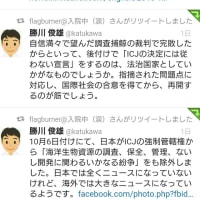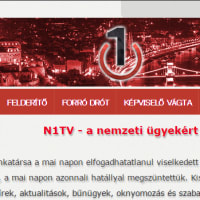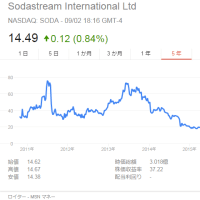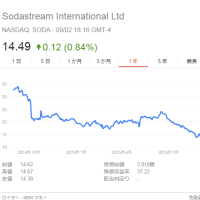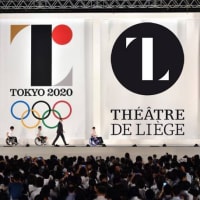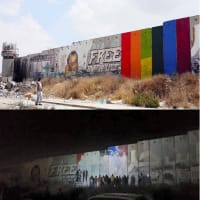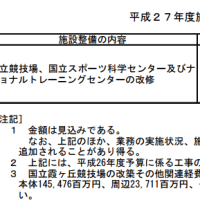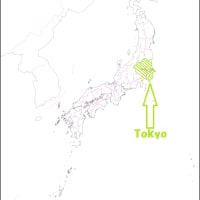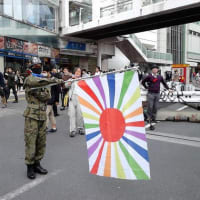今回は、先月に行われた 2010IWC総会の復習みたいなモン。
教材(?)は、複数環境団体のメンバーが関与する ASOC(Antarctic and Southern Ocean Coalition)というグループが出した論評・・・。
・ASOC Report on IWC 62
Dr. Sidney Holt(2010年6月30日 asoc.org;.pdfファイル)
そもそも、ASOC というグループについてよく分かってない俺(馬鹿)
とはいえ、この論評は IWC の体質について色んな事を語っていた。
この論評を記した Holt 氏は、妥協案として出された Maquiera 議長案について簡単に解説を加えた後、2010IWC総会について意味深な論評をしていた。
以下、2010年6月30日分 asoc.org『ASOC Report~』から P.1-P.2 の一部を(略
---- 以下引用 ----
(中略)
More than half of the weeklong IWC session was convened in camera, with only governmental delegations being present.
The week before there had been two days of less formal sessions, with NGOs present (but not allowed to speak) but not the media.
The outcome was a complete breakdown of negotiations.
The proposals are shelved for a year “of reflection”, and practically abandoned.
They were opposed by almost all conservation/environment/animal welfare NGOs, and by the countries of the European Union (except Denmark), Australia and all the Latin American countries.
The very idea that commercial whaling in the Southern Ocean sanctuary should be legitimized, and essentially arbitrary catch limits awarded for it was practically universally opposed, as was the tendency to ignore science, or just pay lip-service to it, in the setting of catch limits and making other regulations.
Some possible good things were lost in the process, especially possible agreements on measures to ensure compliance with regulations, such as by international observers and DNA profiling of all animals killed, and some limitation on the issuance of Special Permits to kill whales “for scientific purposes”.
But many participants – perhaps most of them – were put off by the obvious dishonesty in the document which while proposing commercial whaling in the sanctuary as well as in the North Pacific and North Atlantic Oceans proclaimed that the sanctuary would still be in existence and the 1982 moratorium on all commercial whaling was being continued!
An important feature of the Agadir meeting was the generally bad treatment of NGO
Observers – who pay considerable fees to be able to attend.
In the 1970 the IWC was in advance of other inter-governmental organizations in allowing NGOs to speak, but that gradually eroded to nothing.
Two years ago that right was partially reinstated, but still extremely limited.
This year the limits were even tighter.
NGOs were given a total 20 minutes or so right at the end of the meeting, after all decisions had been taken.
This is a travesty of the idea of participation of civil society.
A few minutes of the final intervention were, however, taken by Mamadou Diallo of WWF West Africa, Senegal.
His fine and passionate statement is provided below.
(以下略)
---- 引用以上 ----
なんだろうな。
IWC に参加してる各国政府にしてみれば、事前交渉の場に NGO の方々を参加させることに危険性を感じ取ったのかも。
例えば、NGO の方々が掲げてる目標が各国政府にとって受け入れられないブツだったとか・・・。
何にしても、NGO の方々を事前協議から外したのかは理解に苦しむ。
ついでに、本会議での発言時間を制限したってのは、各国政府が NGO の方々を「邪魔者」として認識したってことだろうか?
しかも、発言が許されたのは Maquiera 議長案について非公式で議論された後らしいし・・・。
というか、IWC 総会に参加してる NGO の発言権は、1979年~2007年までなかったのだが。
この辺は以下参照(手抜き)
・Civil society@The Pew Whales Commission - 9th & 10th February 2009(pewwhales.org)
この調子だと、IWC から NGO の方々の総会参加を断られる日が来る悪寒・・・。
もっとも、その前に IWC がいつまで存続できるかどうか知らんけど。
最後は、ASOC の報告書に掲載されてた WWF-West Africa Marine Ecoregion
Programme の責任者である Mamadou Diallo 氏が 2010IWC 総会で行った発言部分を引用して〆る。
---- 以下引用 ----
(中略)
Note: The following text is translated from French, the language of the original verbal intervention.
Mr. Chair,
Ladies and Gentlemen of the Commission,
Dear colleagues representing civil society,
My name is Mamadou Diallo, from WWF West Africa.
Exactly two years ago, speaking rights were given back to civil society after 30 years.
This was a great victory, showing important progress for the IWC.
At a time when all international conventions are becoming transparent and giving civil society a voice; At a time when the international community celebrates biodiversity in this year of 2010; At a time where the debate on climate change and its impacts rages; At a time when the news is dominated by the oil spill and its impacts.
- On this topic, we congratulate the initiator of the proposition to hold a workshop on oil and gas development in the Arctic; At a time when the IWC has been in the spotlight with allegations of corruption and votebuying discrediting the integrity and credibility of this institution:
What has happened with the exclusion of civil society during the last 48 hours is simply shocking, scandalous, intolerable, unacceptable and inadmissible.
It’s worrying.
And it’s even more worrying that civil society were only given a voice only at the last minute, which made the gesture seem like a favour.
The IWC is going backwards and falling into nebulous and meandering negotiations.
What is the IWC hiding?
What justifies the exclusion of civil society?
We expected more from the IWC.
We were waiting for the IWC to make the changes necessary to be a modern, efficient, conservation organization that is transparent, and capable of taking charge of emerging threats.
But these changes cannot happen without the effective participation of civil society, without whom nothing tangible and long-lasting can be accomplished.
Ladies and Gentlemen, we dare to hope that what happened in the last two days is an accident of history and that civil society will from now be an important player in the functioning of the IWC.
To this end, we suggest that the IWC adopt a speaking mechanism similar to other international conventions such as CITES, where the NGOs participate in the decision-making through interventions on agenda items after the governments speak.
The IWC should also consider putting in place at the Secretariat level a sponsorship programme for delegates from developing countries.
Finally, judging from today’s and yesterday’s discussions, we note with disappointment the absence of consensus and the lack of significant progress in negotiations, and regret that the IWC is still at an impasse.
By limiting the number and time of NGO interventions, you are missing an opportunity to hear from conservation organizations such as PEW, EIA, WSPA and Whaleman Foundation, who would have addressed the following topics: the importance of marine protected areas, small cetaceans, welfare concerns about whaling, and a petition signed by 230,000 people asking for an end to whale and dolphins hunts.
Thank your for your attention.
---- 引用以上 ----
IWC に加盟してる各国の方々は、 Diallo 氏の問いにどう答えるのだろうか?
教材(?)は、複数環境団体のメンバーが関与する ASOC(Antarctic and Southern Ocean Coalition)というグループが出した論評・・・。
・ASOC Report on IWC 62
Dr. Sidney Holt(2010年6月30日 asoc.org;.pdfファイル)
そもそも、ASOC というグループについてよく分かってない俺(馬鹿)
とはいえ、この論評は IWC の体質について色んな事を語っていた。
この論評を記した Holt 氏は、妥協案として出された Maquiera 議長案について簡単に解説を加えた後、2010IWC総会について意味深な論評をしていた。
以下、2010年6月30日分 asoc.org『ASOC Report~』から P.1-P.2 の一部を(略
---- 以下引用 ----
(中略)
More than half of the weeklong IWC session was convened in camera, with only governmental delegations being present.
The week before there had been two days of less formal sessions, with NGOs present (but not allowed to speak) but not the media.
The outcome was a complete breakdown of negotiations.
The proposals are shelved for a year “of reflection”, and practically abandoned.
They were opposed by almost all conservation/environment/animal welfare NGOs, and by the countries of the European Union (except Denmark), Australia and all the Latin American countries.
The very idea that commercial whaling in the Southern Ocean sanctuary should be legitimized, and essentially arbitrary catch limits awarded for it was practically universally opposed, as was the tendency to ignore science, or just pay lip-service to it, in the setting of catch limits and making other regulations.
Some possible good things were lost in the process, especially possible agreements on measures to ensure compliance with regulations, such as by international observers and DNA profiling of all animals killed, and some limitation on the issuance of Special Permits to kill whales “for scientific purposes”.
But many participants – perhaps most of them – were put off by the obvious dishonesty in the document which while proposing commercial whaling in the sanctuary as well as in the North Pacific and North Atlantic Oceans proclaimed that the sanctuary would still be in existence and the 1982 moratorium on all commercial whaling was being continued!
An important feature of the Agadir meeting was the generally bad treatment of NGO
Observers – who pay considerable fees to be able to attend.
In the 1970 the IWC was in advance of other inter-governmental organizations in allowing NGOs to speak, but that gradually eroded to nothing.
Two years ago that right was partially reinstated, but still extremely limited.
This year the limits were even tighter.
NGOs were given a total 20 minutes or so right at the end of the meeting, after all decisions had been taken.
This is a travesty of the idea of participation of civil society.
A few minutes of the final intervention were, however, taken by Mamadou Diallo of WWF West Africa, Senegal.
His fine and passionate statement is provided below.
(以下略)
---- 引用以上 ----
なんだろうな。
IWC に参加してる各国政府にしてみれば、事前交渉の場に NGO の方々を参加させることに危険性を感じ取ったのかも。
例えば、NGO の方々が掲げてる目標が各国政府にとって受け入れられないブツだったとか・・・。
何にしても、NGO の方々を事前協議から外したのかは理解に苦しむ。
ついでに、本会議での発言時間を制限したってのは、各国政府が NGO の方々を「邪魔者」として認識したってことだろうか?
しかも、発言が許されたのは Maquiera 議長案について非公式で議論された後らしいし・・・。
というか、IWC 総会に参加してる NGO の発言権は、1979年~2007年までなかったのだが。
この辺は以下参照(手抜き)
・Civil society@The Pew Whales Commission - 9th & 10th February 2009(pewwhales.org)
この調子だと、IWC から NGO の方々の総会参加を断られる日が来る悪寒・・・。
もっとも、その前に IWC がいつまで存続できるかどうか知らんけど。
最後は、ASOC の報告書に掲載されてた WWF-West Africa Marine Ecoregion
Programme の責任者である Mamadou Diallo 氏が 2010IWC 総会で行った発言部分を引用して〆る。
---- 以下引用 ----
(中略)
Note: The following text is translated from French, the language of the original verbal intervention.
Mr. Chair,
Ladies and Gentlemen of the Commission,
Dear colleagues representing civil society,
My name is Mamadou Diallo, from WWF West Africa.
Exactly two years ago, speaking rights were given back to civil society after 30 years.
This was a great victory, showing important progress for the IWC.
At a time when all international conventions are becoming transparent and giving civil society a voice; At a time when the international community celebrates biodiversity in this year of 2010; At a time where the debate on climate change and its impacts rages; At a time when the news is dominated by the oil spill and its impacts.
- On this topic, we congratulate the initiator of the proposition to hold a workshop on oil and gas development in the Arctic; At a time when the IWC has been in the spotlight with allegations of corruption and votebuying discrediting the integrity and credibility of this institution:
What has happened with the exclusion of civil society during the last 48 hours is simply shocking, scandalous, intolerable, unacceptable and inadmissible.
It’s worrying.
And it’s even more worrying that civil society were only given a voice only at the last minute, which made the gesture seem like a favour.
The IWC is going backwards and falling into nebulous and meandering negotiations.
What is the IWC hiding?
What justifies the exclusion of civil society?
We expected more from the IWC.
We were waiting for the IWC to make the changes necessary to be a modern, efficient, conservation organization that is transparent, and capable of taking charge of emerging threats.
But these changes cannot happen without the effective participation of civil society, without whom nothing tangible and long-lasting can be accomplished.
Ladies and Gentlemen, we dare to hope that what happened in the last two days is an accident of history and that civil society will from now be an important player in the functioning of the IWC.
To this end, we suggest that the IWC adopt a speaking mechanism similar to other international conventions such as CITES, where the NGOs participate in the decision-making through interventions on agenda items after the governments speak.
The IWC should also consider putting in place at the Secretariat level a sponsorship programme for delegates from developing countries.
Finally, judging from today’s and yesterday’s discussions, we note with disappointment the absence of consensus and the lack of significant progress in negotiations, and regret that the IWC is still at an impasse.
By limiting the number and time of NGO interventions, you are missing an opportunity to hear from conservation organizations such as PEW, EIA, WSPA and Whaleman Foundation, who would have addressed the following topics: the importance of marine protected areas, small cetaceans, welfare concerns about whaling, and a petition signed by 230,000 people asking for an end to whale and dolphins hunts.
Thank your for your attention.
---- 引用以上 ----
IWC に加盟してる各国の方々は、 Diallo 氏の問いにどう答えるのだろうか?











